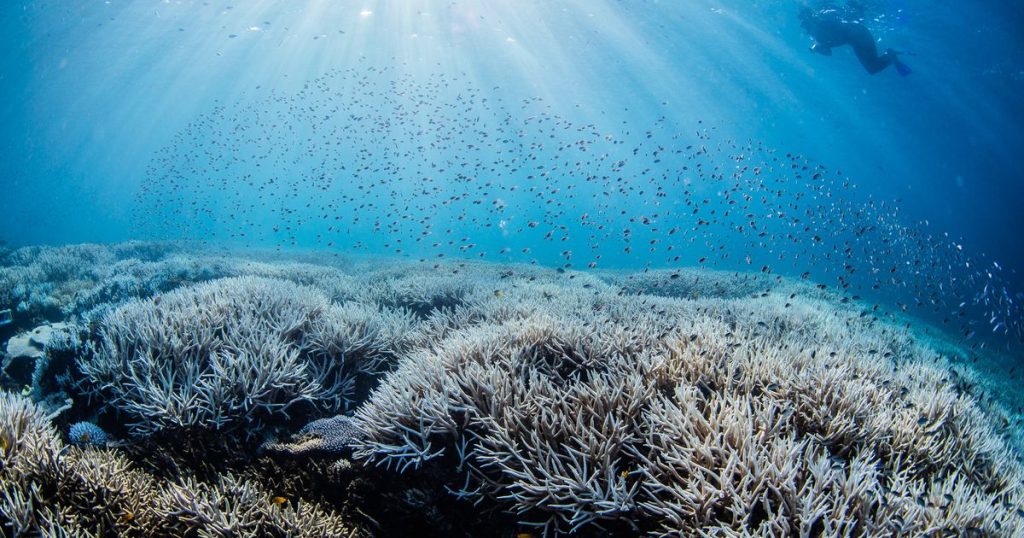Australia’s Great Barrier Reef is currently facing one of the most devastating coral bleaching events in recorded history. This is a result of extreme temperatures and oceanic heat over the summer months, causing widespread devastation to the delicate corals that make up the iconic structure. A recent survey by the Australian Institute of Marine Science revealed that around 75% of the surveyed reefs in the Great Barrier Reef showed signs of prevalent bleaching, marking the first time such extreme levels have been seen across all regions of the reef. This comes after a series of previous mass bleaching events in 2016, 2017, 2020, 2022, and 2024.
The root cause of this coral bleaching is climate change, as stated by David Wachenfeld, the research program director at the Australian Institute of Marine Science. Climate change has led to more frequent and severe marine heatwaves, giving corals shorter recovery periods between bleaching events and other disturbances. Coral bleaching occurs when corals are stressed by changes in temperature, causing the polyps to expel the colorful algae inside them, turning the corals white. While a bleached coral is not dead, it becomes highly sensitive and can perish if temperatures remain too high. The ongoing bleaching event in the Great Barrier Reef has raised concerns about the possible death of large sections of coral if the trend continues.
The severity of the coral bleaching event in the Great Barrier Reef has prompted global attention, with the National Oceanic and Atmospheric Administration confirming that the world is currently experiencing its fourth global mass bleaching event on record. This event has impacted regions from the Caribbean down to Brazil, through the South Pacific, and into the Red Sea and Persian Gulf. The Australian government recently released a map showing the extent of mass coral bleaching on the Great Barrier Reef during the summer, revealing that this is the fifth event in just eight years and the most severe and widespread one to date. Only the far north of the reef has been spared from the bleaching event this time.
Scientists and experts are sounding the alarm about the escalating severity of these coral bleaching events, emphasizing the urgent need for global action to combat climate change and protect coral reefs worldwide. Derek Manzello, the head of NOAA’s Coral Reef Watch, highlighted the extreme nature of the current bleaching events and stressed that this should serve as a wake-up call for the world. With corals bleaching simultaneously in different ocean basins, the situation calls for comprehensive efforts to address the root causes of climate change and mitigate its impacts on coral reefs. The resilience of the Great Barrier Reef is being put to the test, underscoring the importance of proactive conservation measures to safeguard this unique and vital ecosystem.


